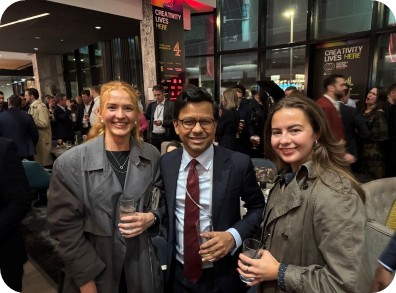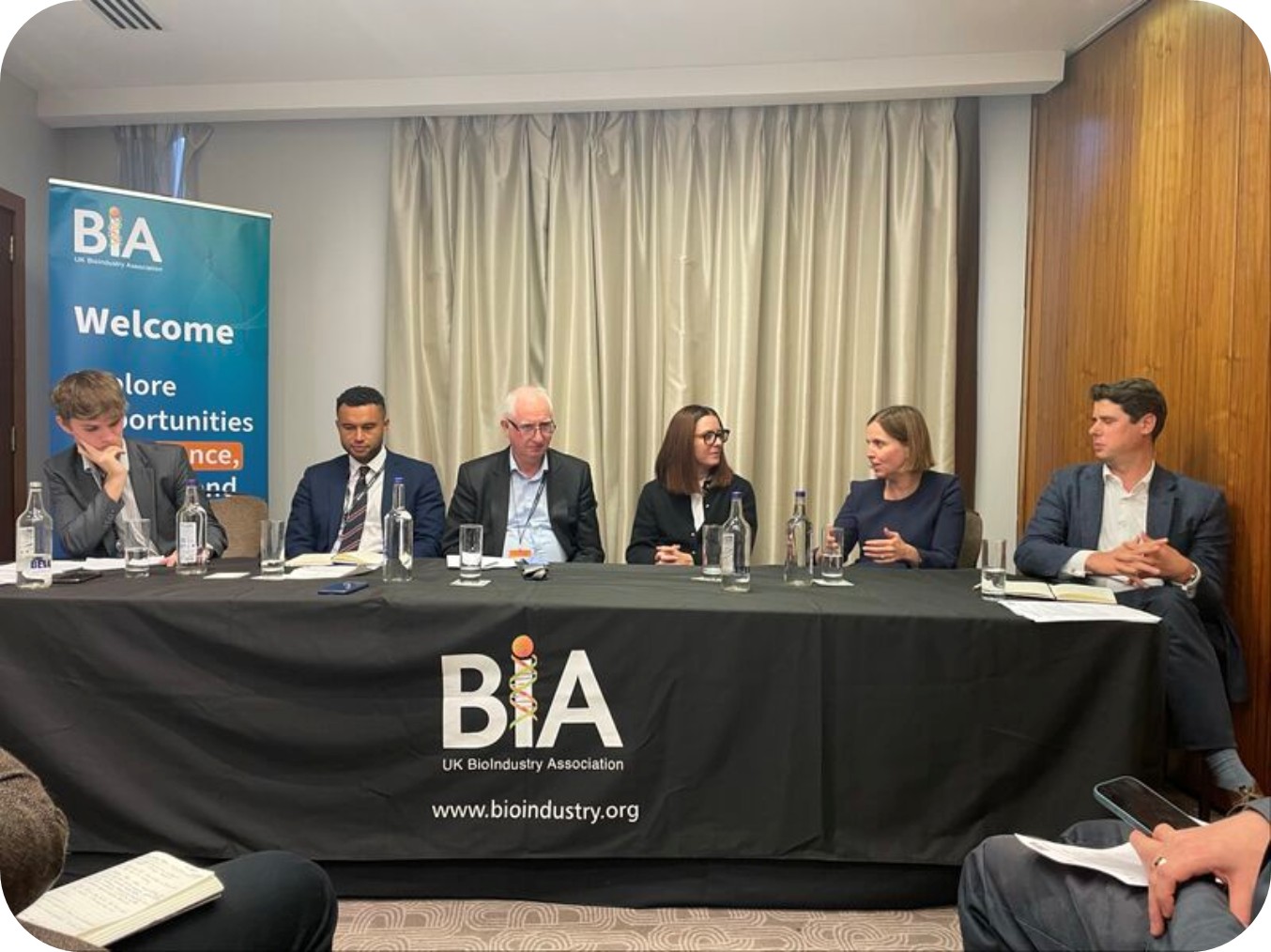Policy, pensions and pints: championing biotech at Labour Conference 2025

Liverpool once again played host to the Labour’s annual party conference - a key gathering for ministers, MPs, and Labour faithful to debate priorities and shape the direction of government. Here Maddy and Emma from BIA's policy and public affairs team report and reflect on the mood in Liverpool, pulling out the key insights for our sector. Stay tuned for our next blog covering the opposition conferences.
This year’s Labour Party Conference carried a more subdued tone than last year’s post-election euphoria - underscored by ominous opinion polls and a reshuffled team of ministers still finding their feet. Policy announcements were thinner on the ground, replaced by an emphasis on values as Keir Starmer sought to reassert direction after a rocky first year in government. And while some special advisers were left sighing ruefully into their pints outside the Pullman, many delegates found renewed energy in Starmer’s rallying call - framing the political moment as an existential contest with Reform for Britain’s future.
Suitcases zipped and lanyards donned, BIA joined the action. We met with key political figures to cut through the noise and ensure UK biotech remains front and centre in conversations on economic growth, investment, and innovation. Through a packed schedule of fringe panels and roundtables, we championed the sector’s priorities on capital access, manufacturing resilience, and the talent pipeline needed to anchor life sciences businesses in the UK.
Clear calls emerge from Sunday’s small business day
This brought together SMEs, ministers, and MPs to discuss the challenges and opportunities for small firms under the new government. We met Blair McDougall MP, newly appointed Minister for Small Business and Industrial Strategy, to underline the importance of access to finance for scaling life science companies - a priority he strongly shares. He plans to meet SMEs every Thursday as part of his role; BIA members interested in hosting him should get in touch. We also spoke with Dame Meg Hillier MP, Chair of the Treasury Select Committee, who expressed concern about HMRC’s delivery of R&D tax reliefs. Her committee will question the HMRC CEO in November and has invited BIA’s input, which we’ll be providing.
Keynote speeches focused on stability, growth and renewal
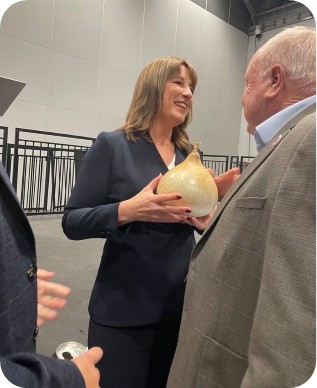
Chancellor Rachel Reeves struck an optimistic tone, describing the UK as “primed for economic success” and highlighting strengths the BIA champions: a skilled workforce, world-class research, and pension reform. However, the life sciences or innovation more broadly did not feature in her remarks – or the Prime Minister’s. This is in contrast to Johnson and Sunak, who did make our sector a feature of their speeches. There remains widespread concern in business about further tax hikes at the Budget on 26 November, which she did not rule out, while she did restate her commitment to her fiscal rules, that requires balancing tax and spending.
Keir Starmer used his speech to call growth the “antidote to division” and the defining mission of his government. He announced an updated target for two-thirds of young people to either to go to university or into a “gold-standard apprenticeship”, and unveiled “NHS Online”, a fully digital trust aimed at cutting waiting times and giving patients more control.
In his keynote, Health Secretary Wes Streeting reaffirmed ambitions to expand access to weight-loss treatments on the NHS and drew warm applause with a tribute to Angela Rayner. Meanwhile, Home Secretary Yvette Cooper outlined plans to link indefinite leave to remain to new conditions around work, language, and volunteering.
Pensions and prevention were favourites at the Fringe
The Conference fringe isn’t, despite the name, a Rachel Reeves inspired hairstyle trend. It’s the packed schedule of debates, panels and receptions around the main conference hall where party members, industry voices, think tanks and campaigners can discuss policy and influence the agenda.
Pensions reform was a popular topic, with eight events by our tally exploring how to unlock long-term growth capital. Many speakers backed the Mansion House reforms and the upcoming Pensions Bill, but noted the need for a cultural shift, from a focus on low fees to one on returns and impact. Pensions Minister Torsten Bell captured the mood: “We can’t build a thriving economy if pensions aren’t investing in it.” Unlocking DC capital for UK innovation, championed by the BIA since 2015, is now firmly in the political mainstream.
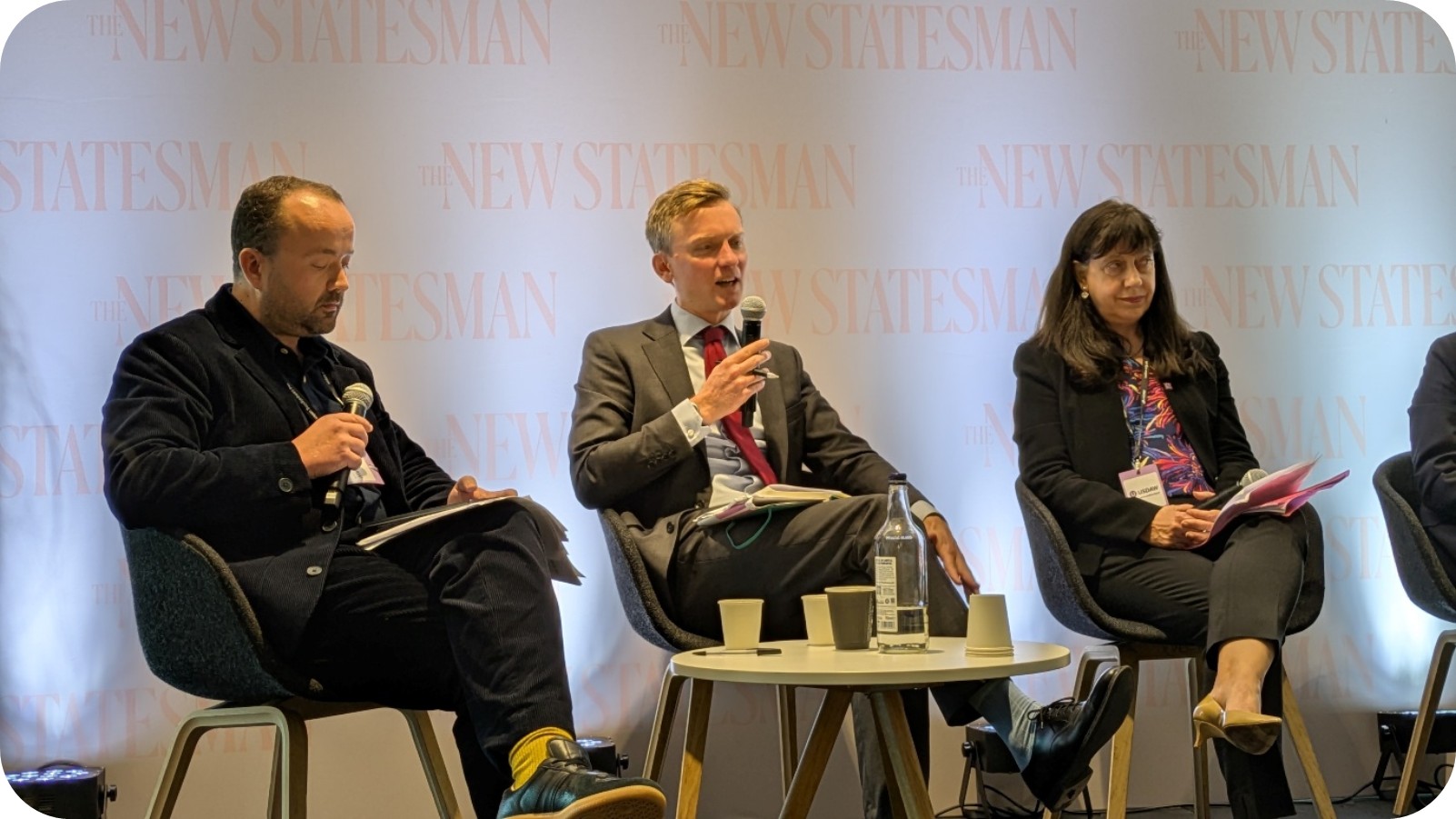
Prevention-first healthcare, precision medicine and digital innovation in the NHS were other prominent themes at the conference, alongside debates on industrial strategy, AI and the circular economy.
At AstraZeneca’s panel, UK Chair Shaun Grady and Emily Darlington MP for Milton Keynes Central highlighted the UK’s underperformance in making new medicines fully available compared to other countries, emphasising that it’s not just about pricing, it’s about having a fully functioning ecosystem to translate world-class science into patient impact. Novartis’s Thomas Cawston urged government to focus on delivery, not duplication: “We can’t just react to the latest from the White House.” He warned that the UK’s fragmented policy landscape and underinvestment risk holding the sector back. With the Life Sciences Sector Plan now the fourth strategy in 15 years, he argued government must pick “one or two fundamental levers” like VPAG stability and skills - and deliver them well.
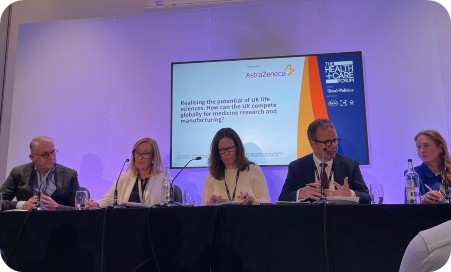
At another panel alongside charity and patient group reps, UCB’s Nico Reynders praised the UK’s world-class science and IP regime but warned that “patient access remains the biggest barrier,” with VPAG and trial capacity limiting innovation. Closing the session, Sam Carling MP for North West Cambridgeshire, urged a shift from competition to collaboration in research, noting that “too much time is spent writing grant applications instead of solving problems.”
At Moderna’s discussion on the Future of UK Vaccination Policy, speakers including Darius Hughes underlined that vaccination equality is essential for a truly preventative health system – and that strong political will must now be matched by local delivery to get vaccines into communities.
At Labour Together’s Invest 2035 event, new Science, Innovation and Technology Minister Liz Kendall declared “there’s no path to growth without these sectors leading the way,” calling for excitement about science and tech to be shared in every community. She spoke passionately about the skills gap, noting that “young girls see beauty influencers and want to be nail techs, not lab techs” - the need for visible role models and cultural inspiration. Liam Byrne, Chair of the Business and Trade Select Committee, echoed her ambition, asserting we need a better marriage between financiers and inventors to turn the UK’s world-class science into lasting economic strength.
BIA’s fringe panel brought the conversation home
Our event on Tuesday evening was on “Scaling Up, Not Shipping Out: How Can Labour Keep Britain’s innovative Businesses on Home Soil?”. BIA member Lucy Foley highlighted the journey that eXmoor Pharma has been on and the potential there is across other UK Life Science companies, while Callum Anderson MP (and DSIT personal private secretary) and Daniel Zeichner MP spoke of the powerful life sciences clusters in their constituencies and the role of government in nurturing these ecosystems. Veronica Humble (NatWest Cushon) highlighted growing momentum behind pension reform, noting that as DC pots grow, members increasingly want to see tangible impact. The panel agreed reforms like the Mansion House Compact and targeted funds such as the Life Sciences Innovative Manufacturing Fund will be crucial to anchoring companies in the UK, alongside patient capital, co-investment from the British Business Bank, and fiscal incentives that help firms scale beyond the startup stage.
It was encouraging to see many of our panel’s themes echoed by Patrick Vallance back in London shortly after the conference, as he urged swift action from pension industry leaders at the BVCA showcase last Thursday. He made clear that unlocking pension fund investment is now “central to our mission”- not just for better returns, but to “fuel the innovation that underpins UK competitiveness.” He warned that “every day we don’t fix the scale-up deficit, we increase the lost opportunity”.
Our final reflections

The conference captured the post-euphoria, pre-delivery moment of Starmer’s Government - still shaping its narrative and figuring out how to turn ambition into coordinated action.
One insider reflected that this is a messy task - “Twenty departments, five ministers in each… you’re trying to weave a story, a washing line of policy announcements that all hang together.”. The levers for delivering life sciences sit across many of these departments, and for the BIA, it was heartening to see long-standing priorities moving to the centre of the conversation about renewal and growth, and firmly fastened to the Westminster washing line.
With ministers settling into post and the Pensions Bill progressing through Parliament, the challenge now is delivery.
Liverpool set the stage - now Westminster must act.

